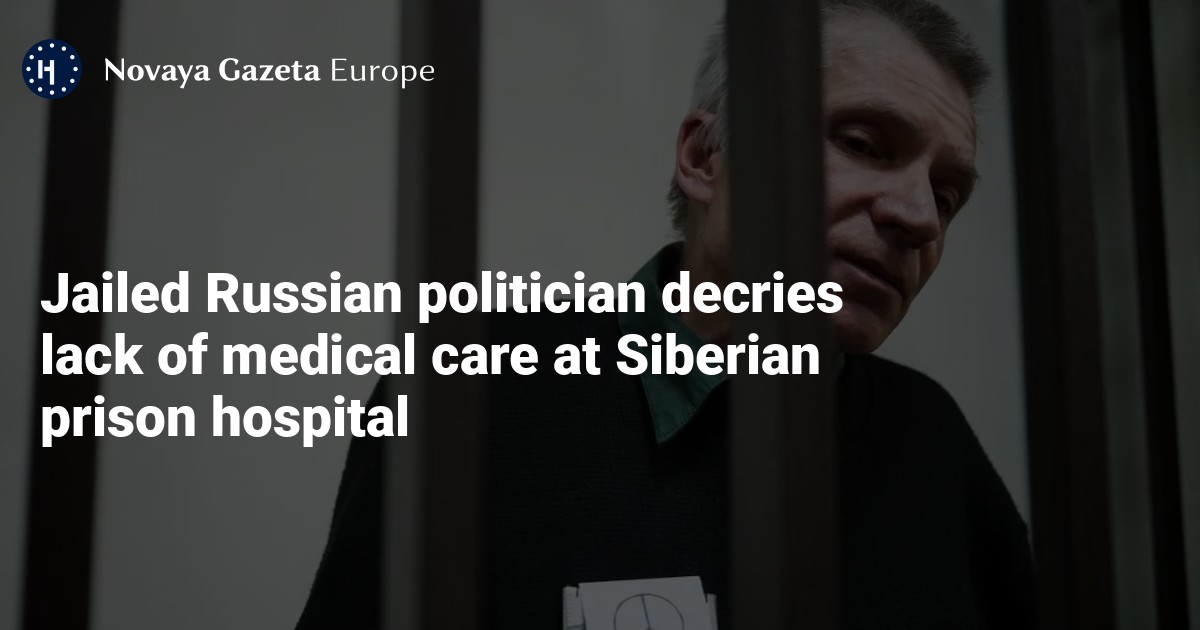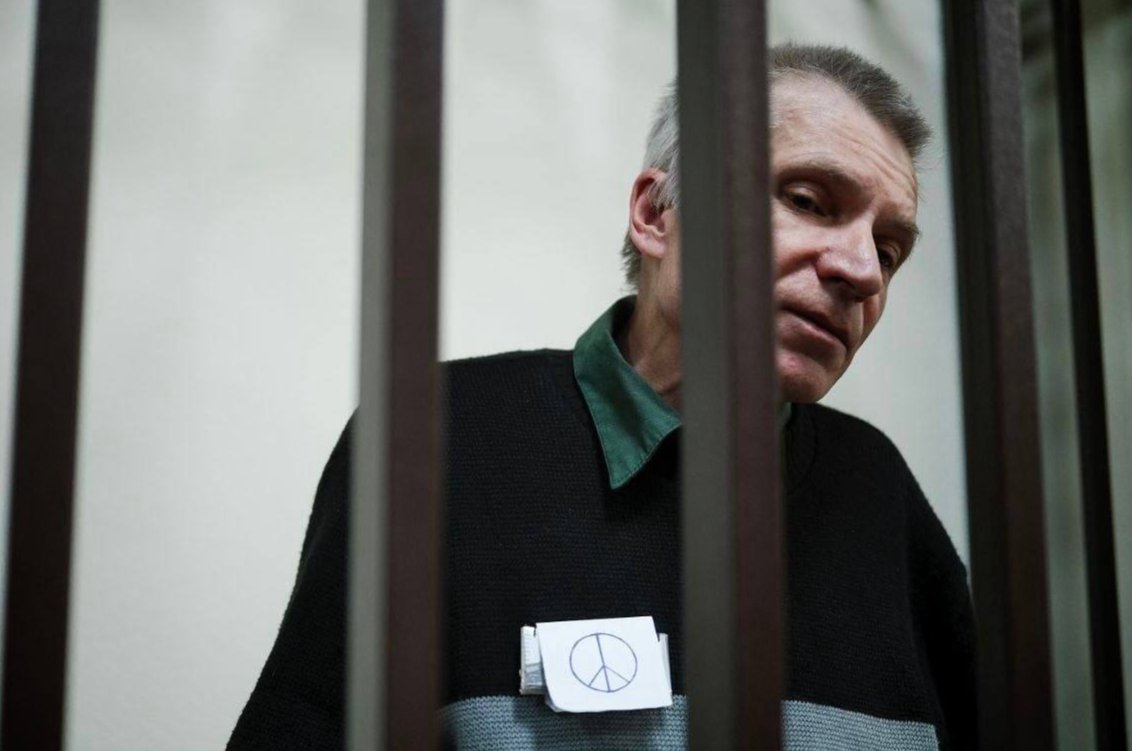




Alexey Gorinov in court on 29 November 2024. Photo: SOTAvision
Alexey Gorinov, a Moscow politician jailed for criticising the Russian invasion of Ukraine who suffers from tuberculosis and acute bronchitis, has written about the lack of medical care in a letter published by his support group on Telegram on Wednesday.
Gorinov was sentenced to seven years in prison in 2022 for criticising a children’s drawing competition as inappropriate during wartime and calling for a minute’s silence for victims of Russia’s invasion of Ukraine at a council meeting. In the letter dated 5 June, he said he was currently at a prison hospital in Barnaul, in the southern Siberian Altai region.
In November, Gorinov had three years added to his sentence for “justifying terrorism” after he defended a Ukrainian attack on the Crimean Bridge, which connects the annexed Ukrainian peninsula to Russia, as well as the actions of Ukraine’s Azov Battalion, deemed a “terrorist organisation” in Russia, in conversation with fellow inmates, one of whom recorded the interaction.
“The doctors are busy studying my body, but not treating it,” he wrote, adding that the medical staff had taken away all the medicine provided to him by his lawyer before he left the prison in Vladimir, in central Russia, without offering anything in return.
Gorinov said he had to resort to “self-hypnosis and meditation” as a form of treatment, and that his current condition was “noticeably better”.
He added that he was likely to be discharged from the hospital soon and transported to a prison in Rubtsovsk, in the Altai region. “I believe that they sent me to such a distant place on purpose, to wear me out and deprive me of visits from my relatives and friends, and to make it difficult for me to communicate with my lawyers. Why else would they do it?” he wrote.
Gorinov said that the authorities believed they had given him a “one-way ticket” by sending him to a remote prison colony, though he refused to see his transfer to Siberia as “the end”.
“For me, the end is a free democratic European Russia, where human life, rights and freedoms are of supreme value, and where power changes hands on the basis of free competitive elections … Let’s see who will live to see the end,” he wrote.
